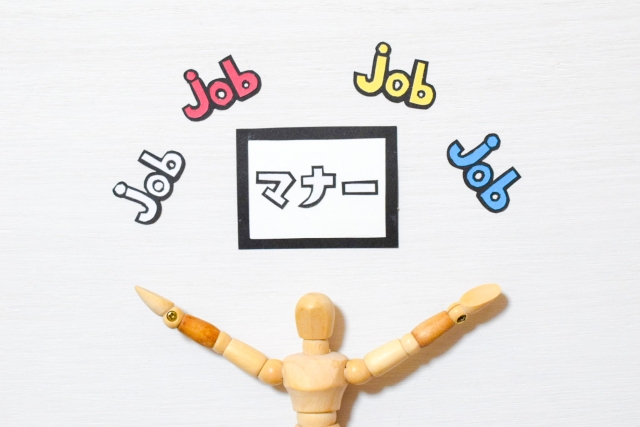Foreigners who have come to live in Japan for work must adjust to the Japanese lifestyle and work environment.
Both are very different from those in Europe and the U.S. In this article, we will pick up “Workplace & Business Rules in Japan” from the “Differences in Work” section.
There are various differences not only in rules in the workplace but also in business manners.
In this article, I would like to explain such “Workplace & Business Rules of Japanese Companies” that foreigners should know.

Join private lessons with the best tutors online or in-person, and learn Japanese efficiently.
Contents
- 1 Workplace & Business Rules of Japanese Companies
- 1.1 (1) Not only do executives respect their superiors, but also there is a hierarchical relationship even at the time of joining the company.
- 1.2 (2) Many regular meetings
- 1.3 (3) There are rules such as “upper seat” and “lower seat
- 1.4 (4) It is not necessary to be there exactly at the scheduled time.
- 1.5 5) There is an image that leaving first is a bad thing.
- 2 Conclusion
- 3 Related posts
Workplace & Business Rules of Japanese Companies
Let’s start with the workplace and business rules unique to Japanese companies.
(1) Not only do executives respect their superiors, but also there is a hierarchical relationship even at the time of joining the company.
Within the same company, it is a matter of course that those with higher positions give instructions to those with lower positions, and those with lower positions respect and follow the instructions of those with higher positions.
However, in Japan, there are other detailed hierarchical relationships, and failure to follow these unspoken rules can lead to trouble.
That is the “early entry period.
For example, there are two employees as follows
A: 28 years old, in his 5th year with the company
B: 32 years old, in his third year with the company
In Japan, there is basically a “culture of respecting older people,” but this culture does not apply within the company.
In the case of A and B, A is in a higher position.
Of course, the assumption is that they are in the same position, but even if they are younger, if they joined the company earlier, they become senpai (senpai), which means they are in a higher position.
Therefore, if you are going to work for a Japanese company other than a foreign-affiliated company, you need to have a clear understanding of not only your position but also the “timing of your entry into the company,” and act and speak in a manner that respects your senpai.

(2) Many regular meetings
One of the factors that has caused Japanese companies to lag behind their global counterparts over the past several decades is that they continue to follow internal rules that have been in place for a long time, even though times have changed.
One rule that is of particular concern to non-Japanese is “too many regular meetings.
In Japan, there are many in-house meetings anyway.
Not only monthly meetings, but also weekly meetings on a fixed day of the week, and emergency meetings gathered when something irregular happens.
In addition, not only are there many meetings, but there are also many questions about the content of those meetings.
The number of participants in a meeting is too large.
Only a few people speak.
Meetings continue for a long time even if the agenda is thin.
In this way, time spent in meetings can seem like a waste of time in today’s Japanese companies. (Of course, this is not the case in all companies, but there are still many companies that do this.)
(3) There are rules such as “upper seat” and “lower seat
In the Japanese business scene, you must also be aware of your “sitting position.
There are rules not only for meetings, but also for where to sit in the car or at dinner.
In a meeting room or at a dinner, the seat closest to the entrance is the lower seat (for employees who have not been with the company for a long time), and the seat in the back is the upper seat (for executives and senior employees).
In a car, the seat directly behind the driver is the upper seat and the passenger seat is the lower seat.
If you do not know these rules and sit in the appropriate seat, it will not look good even if you are a foreigner, so it is important to remember them.
(4) It is not necessary to be there exactly at the scheduled time.
Meeting starts at 3:00 p.m.”
If you enter the meeting room at 3:00 p.m. because that is the scheduled time, you will be offended in Japanese companies.
What? Why would I be offended if I arrive at the meeting room at 3:00 p.m. for a meeting that starts at 3:00 p.m.? This may come as a surprise to you.
In fact, in Japan, it is common practice to arrive 5 or 10 minutes before the scheduled time, so “exactly on time” means “almost late.
It means “the meeting will start at 3:00 p.m.,” which means that you need to be seated and ready for the meeting by 2:50-55:00 p.m. This is an unspoken rule in most of Japan.
This unspoken rule is actually enforced in most Japanese companies, so when working for a Japanese company, try to arrive at least “5 minutes before” the meeting.

5) There is an image that leaving first is a bad thing.
In Japanese workplaces, when you finish work first and leave, you say “ogresareta shimasu” before leaving for work.
For a long time, people in Japan have valued “those who do overtime work = those who work hard at their jobs,” and this image remains strong even today.
Normally, an employee who can do his/her work rationally and leave the office early should be superior, but in Japan, it is possible that the opposite is true.
If you leave the office without saying “Good-bye” instead of “Good-bye,” you may get a bad impression, so you should be careful.
Conclusion
In this article, I have explained “Workplace & Business Rules of Japanese Companies” that foreigners should know.
Different countries have very different workplace rules and business manners.
Especially in Japan, there are many areas that differ greatly from those in Europe and the United States, so it may be a good idea to know such rules to some extent beforehand.










